Former Nottingham Forest striker Dexter Blackstock is now CEO of MediConnect, a blockchain platform that gives online pharmacies more transparency
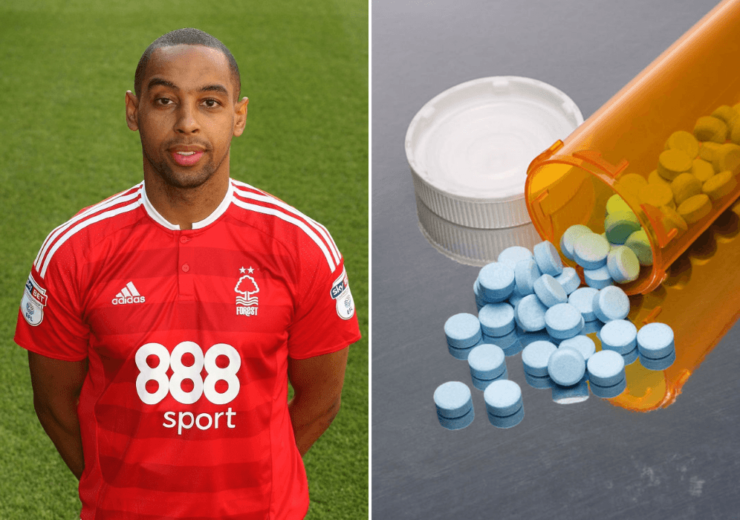
Dexter Blackstock set up MediConnect in 2017 to help online pharmacies in avoiding overprescriptions
Many footballers choose to stay in the game through coaching or punditry after retirement, but Dexter Blackstock is taking a much less-travelled route by setting up a tech business that uses blockchain to make online pharmacies safer. Dan Robinson catches up with the former striker to learn more.
Dexter Blackstock sits back and speaks quietly about his career as a footballer, the houses he invested in and the players who helped him to look after his money sensibly.
His slight lack of enthusiasm on such subjects is not exactly a rarity – many ex-players are bored of telling the same old stories from the life that made them rich and famous.
But when it eventually becomes time to talk blockchain, he leans in.
“Blockchain will interrupt many industries where there are third parties,” says Blackstock, his voice a touch louder as his unexpected passion comes to the fore.
“Estate agents, letting agents, solicitors – it will act as a trusted source for people to make peer-to-peer interactions, so blockchain is 100% here to stay.”
There’s probably not many footballers – or members of the public, for that matter – who know what blockchain actually is.
Many of us have heard of it and some will have also been told how it’s just “tech for tech’s sake”. A fad without any real use case.
But Blackstock believes the dissenting voices come from those under threat from the decentralised, distributed ledger technology – a database that records transactions across many computers so archives can’t be changed or deleted without the alteration of all subsequent blocks.
He adds: “If you buy a house, you have to go to a solicitor who does the Land Registry searches and mortgage checks.

“But if you had the information on the blockchain, you wouldn’t need a solicitor – you could just trust the source.
“At the moment, we just trust the solicitor because that’s what we know but anywhere where there’s a third party and we want to share personal information, it can interrupt.
“The reason it gets a bad reputation is the same reason why we won’t hear the banks or governments talking about Bitcoin, because it will affect them and it’s not in their interests to protect it.
“But inevitably blockchain is going to come in.”
Dexter Blackstock’s route into business started as a teenage footballer
Before Blackstock was a tech enthusiast, he was a footballer – not necessarily a household name but one who came with a decent enough reputation in the English game.
He was only just forcing his way into the Southampton first team, aged 18, when he bought his first house as an investment property.
“It cost £115,000 and I rented it out for £600 ($770) a month,” he recalls. “I actually just sold it recently for £150,000 ($193,000).”
Houses were a safe investment, he felt, and admits to being “inspired” by fellow footballers like England and Liverpool striker Robbie Fowler, who owned so many properties a terrace chant was dreamed up with the words “we all live in a Robbie Fowler house”.
“A few players invested in the odd place but no one had the same scale as Fowler,” he says.
“Luckily, I had some friends and players around me who were helping and some business partners too.”
The 33-year-old now claims to own 50 properties, which are collectively worth about £5m – higher than the sum total he earned as a professional footballer.
This doesn’t pass him by. “I wouldn’t be in the position I am now without those investments,” he admits.

“It’s been able to give me security for when I retired.”
Since meeting NS Business, he has though found himself in trouble with the law.
Earlier this month, he was reportedly fined £24,000 ($31,000) by Nottingham Magistrates’ Court after admitting 12 offences relating to breaking housing licensing rules.
While the nine games Blackstock played during the 2004-05 season with Southampton represented the only time he plied his trade in the Premier League, he enjoyed a good career at Championship level – English football’s second tier – for clubs including Queens Park Rangers, Nottingham Forest and, latterly, Rotherham United.
He scored 95 goals in 382 games but hung up his boots in 2017, despite being only 31 and having two years remaining on his contract at The Millers.
“I didn’t enjoy my year at Rotherham and I had businesses moving forward so I knew I could make the jump,” the father-of-four recalls.
“It was a big jump and some people thought I was crazy to do it, but I believed in what I did and haven’t looked back.”
How Dexter Blackstock got into the online pharma business – and the problems facing industry
It was during the latter years of Blackstock’s career when he began investing in pharmaceutical companies.
In particular, he developed an interest in the online pharmacy market after associates set up a Nottingham-based company called UK Meds in 2015.
Patients with prescriptions can buy medicines from the online platform and have them delivered. The company claims to have dispensed more than 500,000 drugs to date.
But throughout 2019, online pharmacies have courted controversy, with medical groups and charities including the Royal College of GPs, Patients Association and DrugWise criticising the industry.
They have pointed out how easy it is for patients to buy medication through online consultation forms that can be manipulated to get the drugs they want but a doctor may not be willing to prescribe, while they say online pharmacists don’t have access to full medical records.
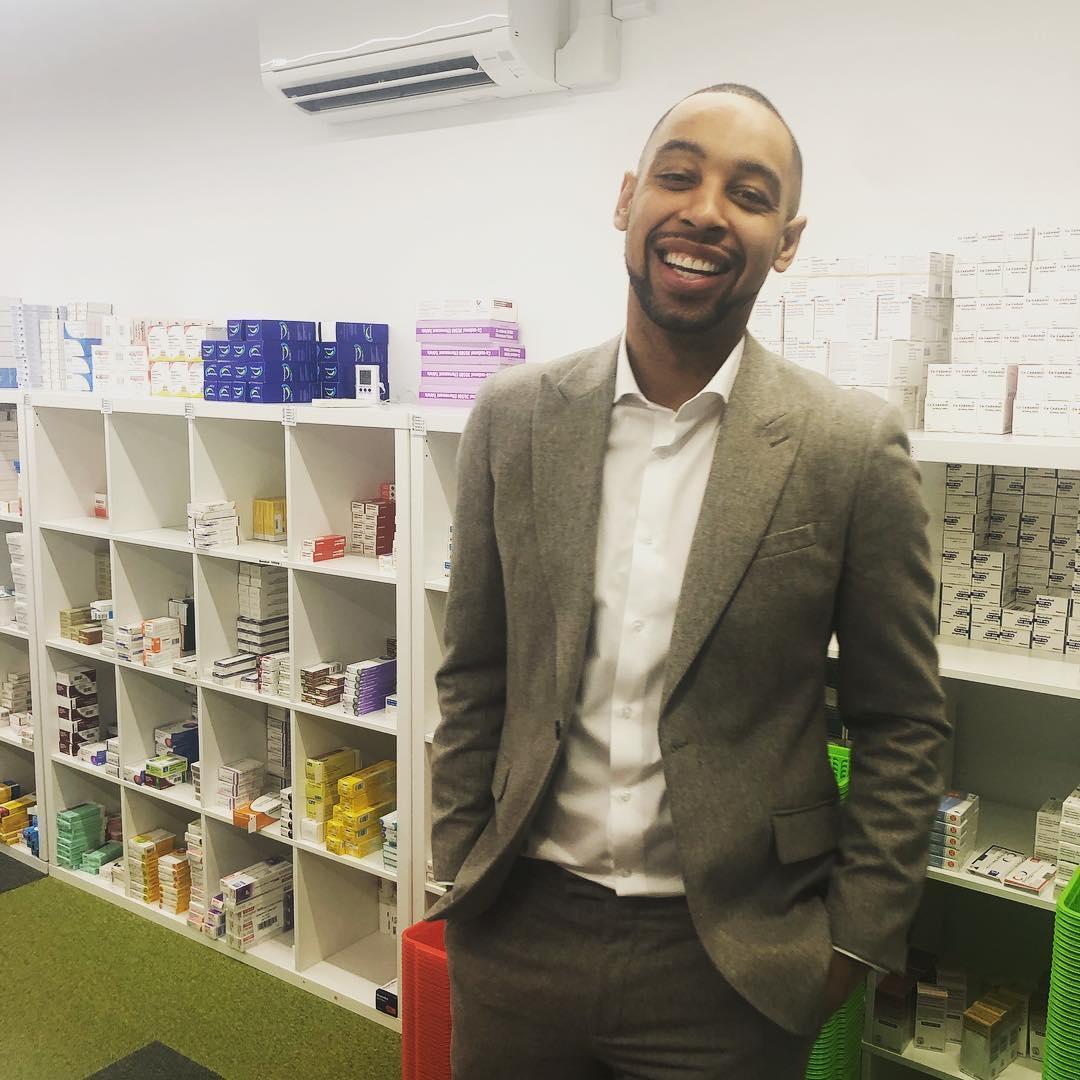
UK pharmacy regulator, the General Pharmaceutical Council (GPhC), introduced new legislation in April this year that requires online pharmacies to verify the identities of patients and consult GPs before dispensing medicines.
The organisation said in July 2019 it was investigating UK Meds over unspecified “concerns” it received in February, while there were calls for more stringent rules after an investigation by The Times last month found that some companies were dispensing opioids without first contacting a doctor.
According to the newspaper, about 2,000 people die each year from taking powerful painkillers – up 41% from 10 years ago – while the number of hospital admissions following an overdosing almost doubled to 11,500 in 2017-18.
UK Meds – which has 360,000 registered patients and makes 50,000 transactions every month – is among those online pharmacies that have accepted the industry needs to confront these issues and is working with the ex-footballer to come up with a technological solution that works.
In an online endorsement, co-founder Joe Soiza says blockchain could provide a “gold standard in patient safety and duty of care”.
Blackstock, who also introduced former team mates Michail Antonio and Henri Lansbury as investors, claims the technology he’s been building for the past 18 months should satisfy the criteria set out by the GPhC in April to improve identity verification.
Recalling how he found his way into the pharmacy industry, he says: “I was starting to understand how it worked and could see the progression in the industry.

“Not a lot of people know about online pharmacies – even now, not many know you can buy medicine online.
“But there’s problems for UK Meds and the whole online pharmacy industry because of the dangers with overprescribing medication to patients.
“You can just fill in an online consultation form the same way you do face-to-face with a GP.
“In a real consultation, that’s not a problem. But the issue is that UK Meds is a private pharmacy, so when you then go to another pharmacy, it doesn’t have that information.
“It means one person could potentially get the same medication from two different sources because there’s no way of knowing what they received beforehand.
“The system can be abused and people die every day from it.”
Dexter Blackstock on how MediConnect uses blockchain technology in online pharmacies
MediConnect, which Blackstock set up 2017, is billed as a safeguarding platform for everyone in the pharma supply chain – including drugs companies, doctors, pharmacists and, most importantly, patients.
Its key ingredient is blockchain, a technology he believes could offer the same trusted source for healthcare as in the legal and property markets where he already sees potential.
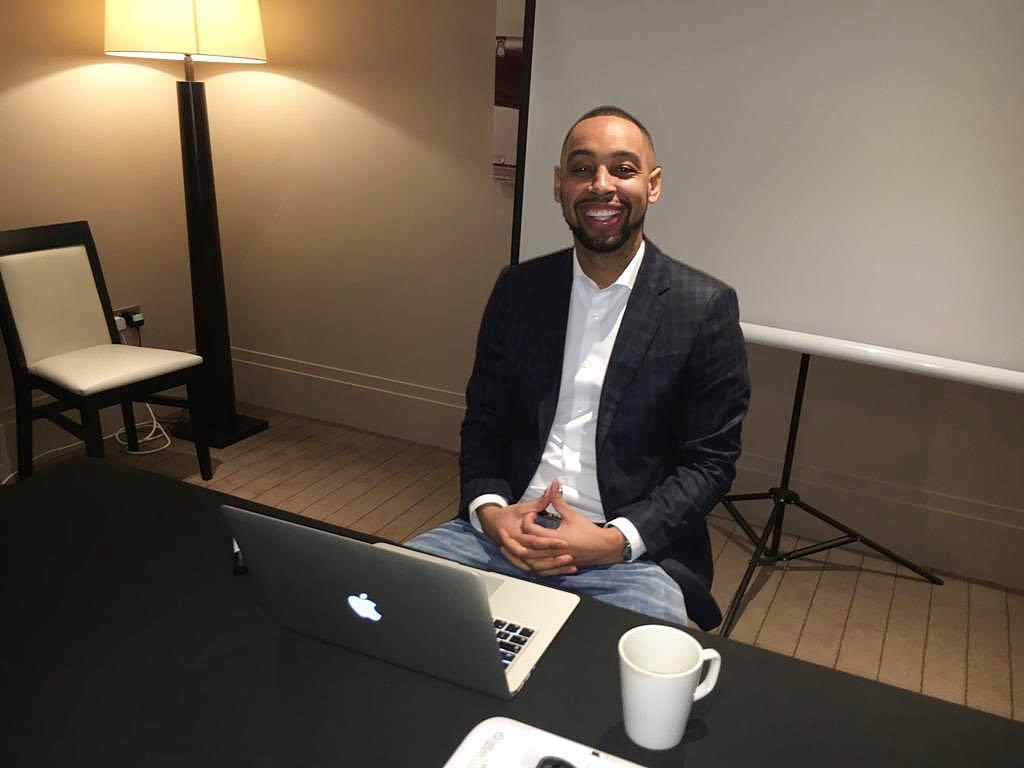
Blackstock explains: “Anyone who’s using an online pharmacy platform will need a unique customer number and every transaction will be put on the blockchain so the next pharmacy can check whether the patient can have that drug in the same timeframe or mix the drugs.
“In that first order, all the important information will be updated so when you go to pharmacy number two, it automatically checks to see whether you can have those drugs.
“It means you can’t get large quantities for the medication.”
Dexter Blackstock on using blockchain to prevent drugs ending up on the black market
Another proponent of blockchain’s use in pharmaceuticals is Kinect Hub, a start-up that is deploying the system to track the medicine supply chain, personal medical records and donations to avoid drugs ending up on the black market in developing African countries.
Blackstock, whose company has partnered with blockchain platform developer Stratis to create the software, is operating in a similar space and has also visited Africa to discuss the issue with high-profile figures.
This year, he’s met the president of Uganda and prince of Eswatini to discuss integrating MediConnect into their national systems in order to cut out counterfeit medication from the supply chain.
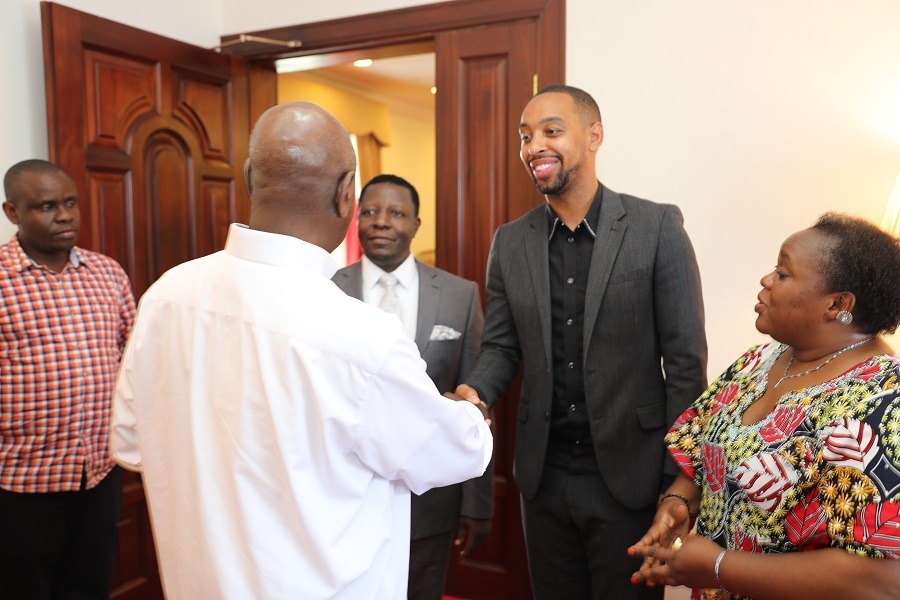
“We could offer traceability of any drug that comes into the country,” says Blackstock.
“Like in many continents, they have public and private healthcare in Africa. They can get the real medication into a government-owned building but what happens when it comes into the country is different.
“There are people who take some boxes out of a shipment, or swap them with counterfeit drugs, and then send them to a pharmacy, while the real ones end up on the black market.
“It’s a wild west where you don’t know what you’re dealing with, so we want to work with governments to track the supply chain.
“We’d be able to identify that 100 boxes came into this location on this day and were scanned in by this person – and the next day there were only 80 boxes.
“We can identify what happened with more transparency, almost like an audit trail from the manufacturer to the warehouse and pharmacy.
“That’s so important because the pharmacist will dispense the drugs but they don’t know how it got there – did it get in via the front door or the back door?”
Dexter Blackstock on the future of online pharmacy business model
While the idea sounds like an ideal solution to a thorny issue in principle, for it to work effectively would require every online pharmacy to sign up.
Given that there are an estimated 2,000 in the UK, it’s a difficult ask and will require having the GPhC on board, perhaps making it compulsory for companies in the sector to integrate MediConnect’s technology into their platforms.
Along with UK Meds, another Nottingham-based company Tower Health & Pharmacy is testing the software, with the hope of having a proof of concept achieved by the end of this year.
Once the platform has been perfected, a pilot programme could begin next year and a fully-fledged project launched before 2020 is out.

Scaling it up across the private pharmacy sector shouldn’t prove an issue as there’s an expectation the online pharmacy market will grow rapidly too once the legal situation is cleared up.
LloydsPharmacy already offers a delivery service and trends point towards more mainstream companies following suit, with Amazon buying US online pharmacy PillPack for $753m in 2018.
“The potential for this is huge,” adds Blackstock, who runs a remotely-based team of 15 people.
“Our aim in the UK is to be gold standard for all online pharmacists so they all use it to make it a safer place for everyone.
“We then want to speak to the NHS to make it a complete national solution because at the moment there’s no secure system.
“If we can prove it works in the online world, it could then work for national health services globally and one day become a billion-dollar company.
“Anything that saves huge amounts of money on wastage could go very far.”
Dexter Blackstock on running a business
Having left behind a career where he was one member of a large squad of players, Blackstock now finds himself as the main man at the helm of a business.
And while he acknowledges how different his life is now, he says: “It’s similar to football in some ways because you’re trying to achieve a goal.
“At the start of a season, you’re trying to get promotion or win the league so it’s no different in many ways.
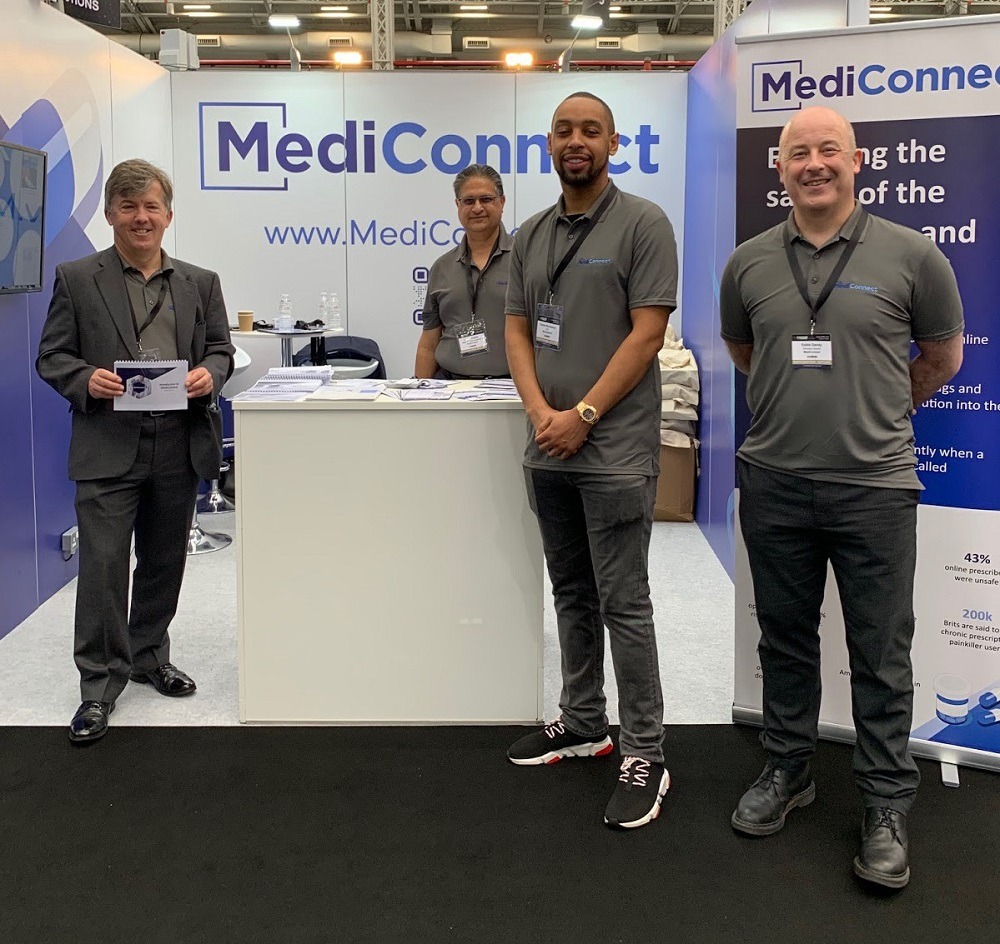
“I believe in the project in doing good, not only in terms of the monetary side but by saving lives.
“And it’s very satisfying because the business relates to everyone – if you don’t have medication yourself, then someone close to you will take some.”
He admits the biggest challenge is surrounding himself with the right people.
“The difficulty is trying to get everyone to believe in the dream you have,” he adds.
He’s already achieved the boyhood dreams many youngsters harbour by playing professional football, but judging by his enthusiasm, the next chapter of Blackstock’s life could be even more exciting.


